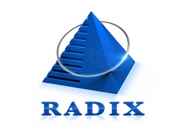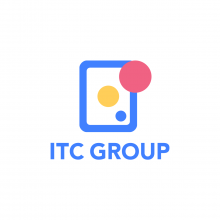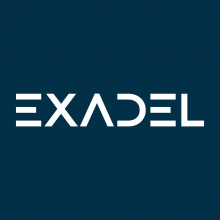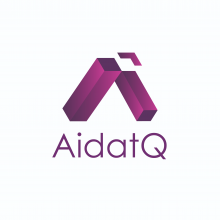
There are 42 Companies in Canada
that provide Go development Services!
There are over 43,200 companies in the Canadian Information and Communications Technologies (ICT) sector. The large majority (over 39,000) fall within the software and computer services industries.
Discover Top IT Companies in Canada specialized in Go and other related services. Find the best IT service providers for your projects.
Go, also known as Golang, is an open-source programming language created by Google. It is designed for simplicity, efficiency, and concurrency, making it a versatile choice for building a wide range of applications, from web services to system software.
Handpicked companies • No obligation to hire • 100% risk-free
Featured Companies in Canada
This month, the following Go development companies managed to provide an outstanding service and support. It's worth taking a look.
Unlock Rapid Innovation in Design & Tech: AI-Powered Efficiency (2x), Transparent Costs, Limitless Customization!
Explore Top Go development Companies in Canada

BRITISH COLUMBIA, Canada Head office in: United States
Decoding Innovation In AI/ML, Blockchain, DevOps, Low code and AI testing
Fire Bee Techno Services is an ISO-Certified Blockchain and AI Development Company In india and across the world with 13+ years of experience.
FlairsTech is a technology-driven Managed Services Provider (MSP) operating from five offices on three continents, serving over 100 global clients.
Webisoft is a blockchain & software dev studio specializing in dApp & custom software solutions.
Services:
Revolution Redefined
Services:

Relia Software Verified Company
Mississauga, Canada Head office in: Vietnam
Vietnam Reliable Web & Mobile Application Development Company
Services:
Logic Simplified is a global technology service provider specializing in Game Design and Development, AR/VR, AI/ML and IoT Development services.
Pro Web Services, Canadian digital services company, offers complete SEO, web design, and AI chatbot integration and websiter maintanace packages.
Services:
Mobile Apps & Web Development
AidatQ builds scalable cloud products with AI Automation and global-friendly support to power modern business growth
- 1
- 2
Filter Go development Companies in Canada by Cities
Find the right tech company near you or from a specific city. Some of the best companies might be located in smaller cities.
Find more Go development companies around the world
TechBehemoths is the world's most advanced and user-friendly platform to match IT Companies with real clients without hustle.
Canada IT Industry: Companies and General Profile
Canada IT Industry: Companies and General Profile
There are over 43,200 companies in the Canadian Information and Communications Technologies (ICT) sector. The large majority (over 39,000) fall within the software and computer services industries.
The ICT sector consists mainly of small companies, with approximately 37,500 of them employing fewer than 10 people. The number of large companies employing over 500 individuals accounts for approximately 105 firms, including subsidiaries of foreign multinational corporations.
In a more industry-narrow way, the Canadian advertising and marketing industry is growing based on international awareness of creativity and the multicultural population. The progressive approaches are resonating with both US and globally-based companies, Mark Tharme from Muse Marketing says.
Why You Should Work With Canadian IT Companies
Canada has found itself in a favorable position compared to other countries that have a well-developed IT infrastructure. Web & IT agencies have a fast-developing rate due to facilitating policies and attracting more young professionals than any other country in the region.
Additionally, IT companies in Canada provide a full-service range with a considerably lower price than in the U.S., and offer in exchange excellent execution, fair customer experience, and professional project management.
From another perspective, working with Canadian IT companies could bring added value in terms of security. In uncertain times, both politically and economically, working with IT companies in Canada reduces technology risk.
What You Should Be Aware of When Working With Canadian IT Companies
The Canadians started to focus on developing their IT industry in 2012, which mainly reveals a lack of consistent experience in the web & software industry. Since almost all IT companies in Canada are small, with fewer than 10 people, the industry is in the full development process, and most of the agencies are not yet ready to take on big projects. Since then, the Canadian IT industry has rapidly evolved with major tech hubs like Toronto, Vancouver, and Montreal by 2025.
At the same time, Canadian companies pay a living wage, and our standard of living is higher than in many other countries. As a result, expect the cost for services to be somewhat higher than in emerging economies.
Are Canadian Web Companies Reliable?
Along with the workforce, Canada attracts an increasing number of companies from around the world, and many of them find the place comfortable and suitable for growing a business in the IT industry. In 2025, there were more than 7,000 IT startups in Canada, according to StartupBlink. Small companies in the Canadian IT industry are new entries and don’t have a global reputation compared to tech giants that relocated or opened new offices in Canada. Nonetheless, you cannot name small Canadian IT companies unreliable, as they all obey the same principles and rules as the bigger ones.
How the Canadian IT Industry Compares to the Neighboring Countries
With the leading US on the continent and probably globally, Canada started to get more attention from the market as being a healthy alternative to what the US has to offer. This refers both to skilled developers & web designers and also clients. Due to the market accessibility and developed IT infrastructure, Canada has its own advantages over the US, like prices and availability, but it’s still behind the U.S in terms of competitiveness.
Overall, Canada is a promising destination for IT companies and a good option for web projects with a growing number of IT centers. The Toronto - Kitchener - Waterloo IT area registered good progress both in training and hiring new talents that compete even with the US Silicon Valley.
What Makes Canada Attractive for IT Companies?
Canada is attractive because the society embraces a global mindset, which is natural due to the multicultural population, both in the industry and in the general population. Historically, the Canadian design and advertising industry was built on American, European, and Japanese cultural influences. Today, the country benefits from influences from all over the world.
At the same time, Amanda Nelson from The Art Of Business mentions that Canada has found itself in a favorable position compared to other countries that have well-developed IT infrastructure. Web & IT agencies have a fast-developing rate due to facilitating policies and attracting more.
How Does the Canadian Government Support the Local IT Sector?
Federally, the Canadian government is providing access to capital through grant programs, including digital transformation grants for businesses, which in turn creates opportunities for digital marketing and IT firms as service providers.
Alberta and Ontario - The Best Canadian Territories/Provinces For IT
Out of 10 Territories and Provinces, Canada is divided. There are 2 worth mentioning - Alberta and Ontario, with Calgary and Toronto as the main tech hubs.
The Toronto/Hamilton business corridor (known as the GTHA) is growing rapidly, both in population and as an international business centre. It already has the highest-density population in Canada and is projected to grow significantly by 2050. With close proximity to Northeastern US markets, high awareness of the city of Toronto as an international destination, and an excellent culture of creativity across all disciplines, this area is well-positioned for growth. Immigration policies are also favorable for companies seeking a location in North America.
In addition, according to Ty Mikitka from Vertical Motion Inc., in recent years, Calgary, Alberta, has made growing strides to become a recognized Western Canadian technology hub thanks to the influx of large technology companies. Notable organizations, including Unity Technologies, Infosys, Test Driven Solutions, RBC Innovation Hub, and Amazon Web Services (Late 2023-Early 2024), now call Calgary home, creating thousands of IT jobs for local Canadians.
"Canadian IT Talent Pool is Good to Excellent"
When talking about the Canadian talent pool, Mark Tharme appreciated the local talent pool as good to excellent. He thinks that IT and communications-related education is available at all levels: colleges, universities, and private schools offer courses in a wide range of information technology disciplines. Students have opportunities to do work placements, co-ops, and internships with many well-regarded companies while studying or upon graduation from a recognized program.
Plan to Open a New IT Business in Canada? Focus on New Technologies!
Local tech leaders also mention that there is enough room in the market for new, innovative companies. However, most of the opportunities are especially in new and emerging technology areas, including AI, cybersecurity, and data management. Canadian companies are "punching above their weight" in many of these areas. Another sector good to explore is security. As Justin Harney from LionEater, the country needs IT security leadership.
As for how easy it is to open a business in Canada, Jeffrey Miles from Jeff Social Marketing mentions that it’s simple to open a business in Canada. The first step is to apply for a business license.
This article was created together with professionals coming from reputable Canadian IT companies. Special credits: Jeffrey Miles, Mark Tharme, Justin Harne, Ty Mikitka, and Amanda Nelson.
What is Go and what are its benefits for your projects?
Go, also known as Golang, is an open-source programming language created by Google. It is designed for simplicity, efficiency, and concurrency, making it a versatile choice for building a wide range of applications, from web services to system software.
More than 363 verified IT companies leverage Go in their development projects. These companies range from startups to tech giants like Google, Uber, and Dropbox. They appreciate Go's speed, reliability, and ease of use for building scalable and performant software.
Go service providers rely on various tools and technologies to enhance their development process. Some commonly used tools include the Go compiler, which transforms Go code into executable binaries, and the Go standard library, which offers essential packages for building applications. In terms of deployment, containerization technologies like Docker are frequently used to package Go applications for consistency and portability.
You may be wondering, how is Go Different from C, Rust, and Java. So, below we’ll try to show you more about the differences that exist between them:
-
Go vs. C: While both Go and C are low-level languages, Go offers modern features like garbage collection and memory safety, which simplify programming. Go is also more concise and expressive than C, making it easier to read and maintain. But if you think your business needs companies that also specialize in C, you can find them on this page
-
Go vs. Rust: Rust emphasizes memory safety and control without sacrificing performance. While Go offers simplicity and readability, Rust provides fine-grained control over memory and is suitable for systems programming with a focus on safety.
-
Go vs. Java: Java is a high-level language often used for building enterprise-level applications. It relies on a virtual machine (JVM) and is known for platform independence. Go, on the other hand, compiles native code, offering better performance and efficiency for certain use cases.
Languages related to Go in terms of use cases and features include Python, Ruby, and Node.js. These languages, like Go, are suitable for building web services and backend applications and are known for their developer-friendly features. If you need these programming languages in addition or instead of Go, just click on their corresponding words above to find verified vendors providing those services.
When selecting IT companies that use Go for your project, consider factors such as the company's experience with Go, their portfolio of past projects, client references, and their understanding of your specific project requirements. Look for companies that align with your project's complexity, scalability needs, and budget.
Go service providers are essential for various project types, including:
-
Web Services: Go is well-suited for building RESTful APIs and microservices due to its excellent performance and simplicity.
-
Networking Applications: Go's concurrency support makes it ideal for developing network-related software such as servers and proxies.
-
Cloud Applications: Go's efficiency and speed are valuable for building cloud-native applications and serverless functions.
-
System Software: Go can be used for developing system utilities, command-line tools, and operating system components.
Go is a versatile language, and its speed, simplicity, and efficient concurrency model make it suitable for a wide range of projects, making it an excellent choice for modern software development.





















